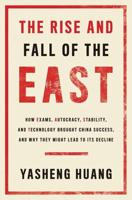Publisher's Synopsis
Knowledge has become increasingly complex and important for organizations. Despite the growing recognition of the factors that enable knowledge management in organizations, our understanding about the unique cross-cultural challenges is rather limited. In particular, how cultural differences influence people's participation in knowledge management activities still remains unclear.
By conducting qualitative case studies and analytic hierarchical process (AHP) with multinational firms in Brazil and China, this book addresses the broader issue of cultural influences on knowledge management. Specific emphasis has been put on their indigenous cultural norms, including guanxi, face and jeitinho and the impacts they have on knowledge sharing. Drawing on an integrative knowledge management model, the results from AHP analysis reveal how some cultural-specific factors related to people, process and knowledge can affect the effectiveness of socialization, externalization and internalization processes in a production context.
The book will be useful to both management academics and business practitioners. While academics will gain insight into the intricacies of knowledge sharing activities in production organizations, managers will find some useful conceptual tools to resolve the challenges of knowledge management in a cross-cultural context.











